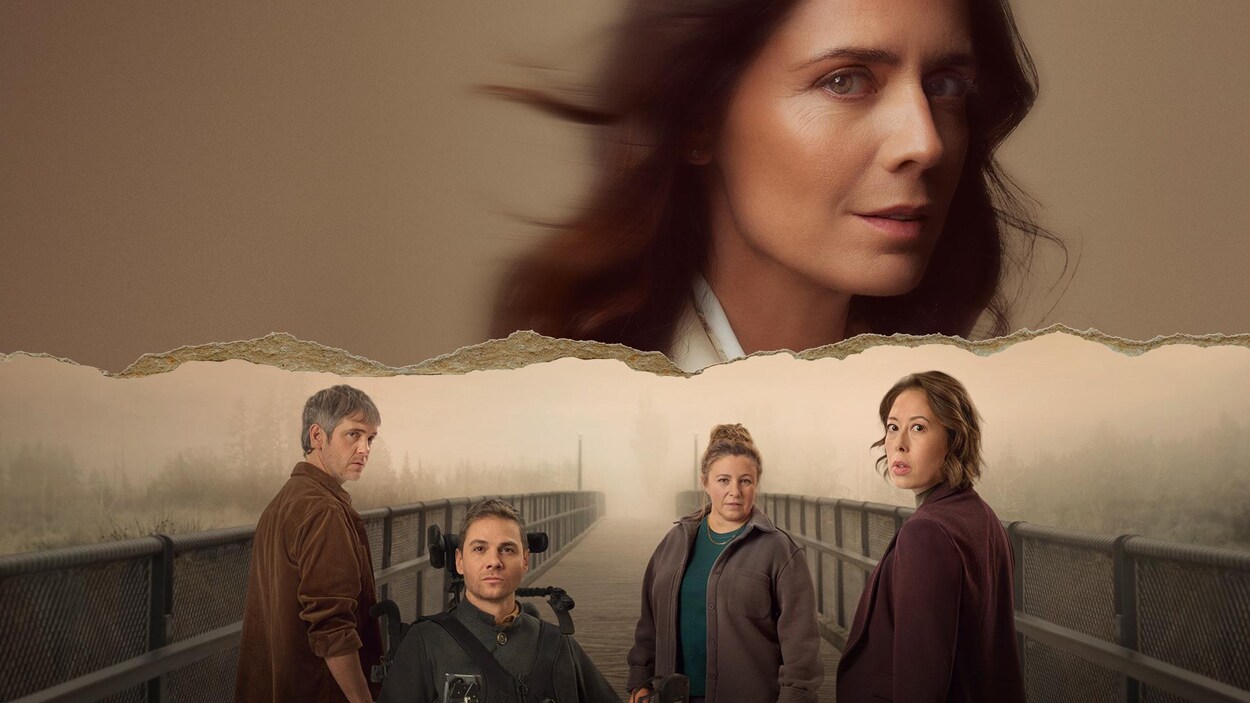
Can We Ever Forgive the Unforgivable? A Deep Dive intoMea Culpa
Mea Culpa , a thought-provoking new series on Radio-Canada, delves into the complexities of restorative justice and the emotional aftermath of a horrific crime that occurred 25 years ago. It centers around Bérénice, a mediator working in a restorative justice center, portrayed by the talented Mélissa Désormeaux-Poulin. As a concept, restorative justice is still not widely practiced, but it serves as a complement to the criminal justice system, focusing on dialogue between victims and offenders in an effort to heal wounds and promote rehabilitation.
The story unfolds against the backdrop of a devastating event that occurred during a 1999 college party. Bérénice witnessed the brutal murder of her friend, Vania, and the brutal assault on another friend, Rémi, who was left quadriplegic. As the series progresses, Bérénice must confront the murderer, David Fraser, who has served 23 years in prison and is now seeking parole. This scenario forces the characters, and the viewers, to question: can we forgive the unforgivable?
Also Read:- Opetaia’s Struggle to Make Weight – Nyika’s Chance to Shine
- TGL - The Future of Golf: A Revolution Begins with McIlroy and Woods
The series offers a complex portrayal of various characters, all grappling with the concept of forgiveness in their own ways. For example, Rémi, despite being paralyzed due to the violence, seems more open to the idea of restorative justice and even agrees to meet with his attacker. Meanwhile, Lysanne, another close friend of Bérénice, is highly skeptical and vehemently opposes any chance of reconciliation with the murderer. This division among friends mirrors the larger societal debate surrounding the limits of forgiveness and the role of restorative justice.
The characters’ responses to David Fraser’s release from prison form the heart of Mea Culpa . While Bérénice has taken on a role that encourages dialogue and healing, the emotional scars of the past are far from healed. As a mediator, she has come to terms with her own journey of healing, yet her ability to openly discuss her relationship with the murderer with her friends is put to the test.
The series explores the deep trauma that lingers long after the physical wounds have healed. The show’s creators, Chantal Cadieux and Myriam Bouchard, bring a level of sensitivity and authenticity to the narrative, having both personally experienced tragedy related to violence. The series is not just a look at restorative justice but also a powerful exploration of human emotions, guilt, trauma, and the potential for healing.
Mea Culpa is certainly not a lighthearted drama; it is intense and, at times, difficult to watch. The complex web of relationships and moral dilemmas presents a compelling narrative that forces us to consider the very essence of justice, the possibility of redemption, and, ultimately, whether some things are simply unforgivable. As viewers, we are invited to reflect on our own beliefs about justice and forgiveness. Can we truly heal from the deepest wounds, or is some pain too great to ever be forgiven? This series pushes us to explore these difficult questions, leaving a lasting impact long after the credits roll.
Read More:

0 Comments